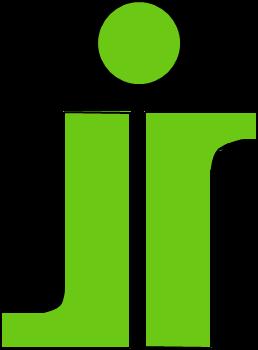






































Kulleġġ San Injazju ,Prof Edward de Bono,Skola Medja Tal-Ħandaq, Ħal Qormi

Ġunju 2025


Kull bidu fih it-tmiem. Id-dgħajsa li kienet fuqha ntrabtet mal-moll biex tirkeb fuq dgħajsa oħra b’iktar responsabbiltajiet. Wara 13-il sena mill-aqwa ta’ tmexxija, b’qalb mimlija gratitudni qegħdin insellmu l-Kap tal-iskola tagħna, Dr Maria Montebello. L-impenn bla waqfien tagħha, il-viżjoni u l-kompassjoni li dejjem uriet ħallew impatt qawwi fuq l-Iskola Medja Tal-Ħandaq. Bħala kollega, esperjenzajt it-tmexxija tagħha u d-determinazzjoni tagħha quddiem kull sfida. Żgur li hija ta’ ispirazzjoni għalina lkoll. Għalkemm it-tmiem ta’ vjaġġ hu diffiċli, aħna nawgurawlha mill-qalb għal bidu ta’ vjaġġ ieħor. Nittamaw li jkun sodisfaċenti u ta’ impatt daqs is-snin kollha li tat lill-iskola tagħna. Grazzi mill-qalb! Is-Sur J. Galdes





Visit was part of a special pilgrimage trip to Gozo marking the Jubilee Year

As part of a special pilgrimage trip to Gozo marking the Jubilee Year, students from Tal-Ħandaq middle school visited Victoria primary school. The group was led by head of school Maria Montebello, accompanied by other teachers. The students were warmly welcomed by head of school Lelio Spiteri and were then taken on guided tour of the newlyrefurbishedschoolpremises.
The visit served not only as a cultural and educational exchange, but it was also as a moment of reflection and connection, reinforcing the spirit of unity andfaith that the Jubilee Year celebrations seektopromoteamongthefaithful.Infact, as part of the visit, Gozo Bishop Anton

Teuma led a prayerful encounter with the students.
DrMontebellocommented: “Thiswasa beautifulopportunityforourstudents to connect with others and experience the hospitality and vibrant learning environmentatthisschool.”
Spiteri expressed his delight in hosting the visiting group, describing the occasion as “an enriching experience that celebrates the strong bond between our educational communities”. He added that thevisithadleftalastingimpressionon all those involved, highlighting the value of interschool collaboration and spiritual growthamongstudents.

Serata ta’ Ferħ u Rikonoxximent
Il-Ġimgħa 20 ta’ Ġunju, l-Iskola
Medja tal-Ħandaq organizzat lattività tant mistennija Ħandaq Summer Night — serata speċjali li ġabet flimkien lill-istudenti u lill-familji tagħhom fi spazju ta’ ċelebrazzjoni u divertiment. Liskolaħolqotatmosferafamiljari, b’ikel u xorb li kienu jakkumpanjaw programm varjat ta’ mużika u talenti, fosthom dawk ta’ studenti stess li ħadu lpalk b’kunfidenza u ħeġġa kbira. Dansarbis-saħħata'numrukbir
ta' membri tal-istaff li taw issehem tagħhom b'impenn kbir biexjoħolqudinl-atmosferatant sabiħa.

Matul is-serata, l-istudenti li ħadusehemfil-breakclubsmatul is-sena skolastika ngħataw rikonoxximent speċjali għall’

apprezzament, kull student ġie ppreżentat b'ċertifikat, mogħti mill-Kap tan-Netwerk tal-
Kulleġġ, Dr Said Pace, flimkien mal-Kap tal-Iskola, Dr Montebello. Dawn l-istudenti, minbarra li attendew l-iskola u tgħallmu s-suġġetti obbligatorji, kellhom iċ-ċans ikabbru l-ħiliet tagħhom permess ta' wieħed minn dawn il-klabbs: Well Being, LibraryHelpers,Drama,Learning Zone, Football, Gymnastics,

Spanish, Board Games, Health & Safety,Tapestry,Arts&Crafts, Book club, Ekoskola, Table Games, Thinking Group, Touch Rugby, French is Fun, Choir, Computer, Chess, Hip Hop, Pottery and Global Citizenship club.
Din l-attività ma kinitx biss okkażjoni ta’ rikreazzjoni, iżda


wkoll mument li fih l-iskola wriet l-apprezzament tagħha lejn l-istudentiul-familjilijiffurmaw
parti mill-komunità edukattiva tagħha. Ħandaq Summer Night kienet lejla ta' suċċess u żgur li se tibqa’ memorja sabiħa għalkulminattendiha.
Is-Sur A. Chetcuti, għalliem tal-Malti




World Autism Awareness Day is celebrated on 2nd April. It is an important occasion dedicated to raise awareness about autism, increase understanding and acceptance of people with autism. Autism is a neurodevelopmental condition that affects how a person communicates, interacts with others, and experiences the world. It is called a "spectrum" because it varies widely from one person to another in terms of severity, abilities, and support needs. This day highlights the need to create environments where individuals with autism feel respected, supported, and empowered to thrive. Inclusion plays a vital role in breaking down barriers, foster empathy, and ensure equal opportunities.

In the Reach Unit students follow a functional curriculum which focuses on teaching practical, real-life skills that support them in their every day living. Having the skills to make choices, take care of their own needs, and engage in meaningful activities leads to a greater sense of autonomy and personal fulfillment.
To celebrate this meaningful day, students at the Reach Unit had an outing and visited Esplora – Interactive Science Centre. They had the opportunity to explore science exhibitions, experience a sound show and engage in fun and educational activities in a supportive and inclusive environment.


Subsequently, students went on another outing together with the students who follow the Let’s Talk Farming Programme. They visited a local farm alongside other members of the school community involved in the programme. This inclusive outing provided a valuable opportunity for the Reach Unit to be part of a larger group of students. The students could interact with others but at the same time have their own space if needed in a natural environment. Everyone had the chance to pet, feed animals and go on a pony ride. This hands-on experience helped students develop their sensory and social skills through the opportunity of shared learning beyond the classroom.
In addition, the students also worked on a creative project by colouring pages that featured symbols representing autism. These individual pieces were then amalgamated into a beautifully designed bookmark. The bookmark was shared with the entire school community following the Lenten Mass on Friday, 11th April.
During this occasion, a short speech was delivered to raise awareness about autism and promote the message of inclusion. A student from the Reach Unit proudly presented the bookmark to the school, explaining that his own artwork had contributed to its creation. Every student and staff member received a copy of the bookmark as a meaningful token a reminder that with the support of inclusion, all students have the potential to thrive.
Ms. F. Cumbo Piscopo Reach Unit Teacher


Fis-suġġett tal-Malti aħna nindirizzaw
temi kurrenti wkoll mhux biss letteratura u ġeneri ta’ kitbiet. Waħda mit-temi kurrenti li għażilna li niddiskutu flimkien mal-istudenti tas-seba’ sena kienet ‘Il-
Bidla fil-Klima’. Ippreparajna lezzjoni tattaħdit fejn lill-istudenti stedinniehom jiddiskutu fi gruppi l-konsegwenzi li qed iġġib il-bidla fil-klima. Dawn iddiskussjonijiet setgħu jsiru wara li listudenti kienu mitluba jagħmlu riċerka fuq dan l-istess suġġett sabiex jaqsmu linformazzjoni ma’ xulxin. L-istudenti kienu megħjunabistampirelatatimat-tema.

Ma waqafniex hemm, hekk kif wara ppreparajna lezzjoni tal-kitba fejn listudenti ntalbu jimmaġinaw li huma koala li jgħix f’foresta Awstraljana u li għadu kif għadda minn ġrajja mhux tas-soltu relatata mal-bidla fil-klima.
L-istudenti pprattikaw il-ġeneru tal-kitba ta’ djarju biex jirrakkontaw x’ġara. Dawn li ġejjin huma siltiet mill-kitbiet talistudenti tal-klassi 7D.
Cristian: ...ġurnata li ma ninsa qatt.
Kayden: ...in-nargħalaqnaminnkullimkien.


Gillianne: ... kellhom joqogħdu jibilgħu d-duħħan.”
Hazal: Kelli ħarqa kbira fuq ġismi.
Giuseppe: Ħafna koalas tilfu ħajjithom.
Carla: Stajna nisimgħu l-annimali l-oħra jgħajtu, għajjat li jtarrxek.
Emma: ... ħajjitna kollha tlaqnieha finnirien.
Jayden: In-nar kiel kollox.
Sarah: Il-foresta kienet ħuġġieġa waħda.
Jayel: ... bdejt insib kullimkien niexef qoxqox.
Luca: Quddiemirajt xi ħaġa li ser tibqa’ stampata f’moħħi tul ħajti kollha.
Leah: Ma stajtx nara lil familti.
Hailey: Imnalla kienet dik il-mara li salvatni!.
Cylan: Bdejt inħossni vera ħati talli spiċċajt abbandunajt lill-familja tiegħi ħabta u sabta.

Esther: Ħadt ir-ruħ xħin indunajt li familti kienet salvata wkoll!.
Michelle: Kemm nixtieq li dil-problema tat-tibdil fil-klima jibdew jindirizzawha bis-serjetà!
Is-Sa J. Magro, għalliema tal-Malti


By Duncan Ciappara – Teacher for Science
Climate change is no longer a distant danger; it is here, and it is affecting all of us. As educators we believe that the key element to any change is education. But not just any education real, engaging, hands-on learning that empowers students to be at the forefront of change. That is exactly what the science club students have done throughout this scholastic year with the groundbreaking project, Clear the Air.

Students
The Clear the Air project began as a simple idea: to help our students understand how air quality affects their lives and health. According to the World Health Organisation, over 6.7 million deaths worldwide every year are attributed to air pollution. This quickly became a subject of interest and students wanted to investigate the air quality around our school. They did not just learn about pollution from textbooks students measured it themselves. Our school was provided with air quality monitors, provided by RS and CS Technologies, and our students tracked levels of particulate matter (PM) and Volatile Organic Compounds (VOCs) in our laboratory. These PM and VOCs are made up of a mixture of tiny solid particles and liquid droplets found in the air like dust, dirt, and soot. Moreover, organic chemicals that evaporate quickly such as paints, cleaning products and glues also pose a serious threat to our health which can lead to asthma, bronchitis, other respiratory issues and heart problems.

To this effect our students collaborated with health officials from the Environmental Health Directorate to learn about the invisible dangers in our air such as how tiny particles can enter our lungs and bloodstream.
The project started in November 2024 and data monitoring was collected between the 6th of November and 11th December in coordination with the GLOBE Air Quality Campaign an international science initiative that included schools across Malta and Gozo. The GLOBE Programme (Global Learning and Observations to Benefit the Environment) is an international science and education initiative that connects students, teachers, and scientists from around the world. It allows young people to collect real environmental data and contribute to global scientific research, making their learning both meaningful and impactful. This, together with STEAM Learning Ecologies, was the basis of our project. STEAM Learning Ecologies combine Science, Technology, Engineering, Arts, and Mathematics into collaborative learning experiences that go beyond traditional classrooms. These projects encourage partnerships between schools, communities, and industries, helping students apply knowledge in real-world contexts while developing creativity, critical thinking, and problem-solving skills.
During break time and before school, students were divided in groups of 4 to collect the required data. Each week, a new group of students took the data with the outgoing group showing them what they need to do. By using this approach, all the students in the science club were involved and took active participation while their peers were there to assist them. Students even used an app, called the Globe Observer app to track weather parameters, more importantly, clouds and winds. The GLOBE Observer app is a citizen science tool developed by NASA that allows students and volunteers to collect environmental data like cloud cover, land use, and air quality from anywhere in the world. The information gathered is used by scientists, including those at NASA, to better understand our planet and monitor environmental changes by comparing ground-level observations with satellite data.


What makes this project even more special is its integration of digital literacy. Students used spreadsheets to analyse their data, created graphs to visualize trends, and interpreted real sensor output. They also played Treeworld, a digital game that simulates the environmental impact of human activity, helping them understand the balance between development and sustainability. These tools helped the students see the full picture and share their findings in compelling, datadriven presentations.

Left picture shows our students using Treeworld, a digital game, to understand the Greenhouse effect. Right picture depicts the traffic data as collected by our students and using spreadsheet to visualise them.
During the intense monitoring period, students tracked NO2 concentrations using diffusion tubes provided by the Environment and Resources Authority (ERA). NO2, or nitrogen dioxide, is a harmful gas mainly produced by car engines and industrial activity. In our project, students used NO2 diffusion tubes to measure how much of this pollutant was present in the air around our school, especially near busy roads. At Ħandaq Middle School, the NO2 level measured using diffusion tubes was 13.9 µg/m3. While not among the highest compared to other schools, this value still reflects the presence of traffic-related air pollution and reinforces the need for continued monitoring and proactive environmental planning. The results show that schools near busy roads have higher pollution levels, a clear appeal for smarter planning and greener transportation.

What started as a school project has become a full-scale STEAM Learning Ecology. STEAM stands for Science, Technology, Engineering, Arts, and Mathematics, and our work blends all five. We are not just teaching students facts, but we are helping them develop the skills, mindset, and values they will need to shape a better future. Students collaborated with the Thinking club and organised sessions together to develop a letter to the Ħal Qormi local council. Thanks to Ms Vincienne Attard, the sessions made use of Professor Edward de Bono’s “Six Thinking Hats” method and later used the SCAMPER model to brainstorm solutions and critically analyse their environment. In their letters, students suggested solutions like green walls using indigenous plants for less maintenance and less use of water resources, car engine cutoff zones, electric school transport, and better walking and cycling infrastructure.

This project has inspired a peer reviewed research paper which will be presented on the 1st of July during a research symposium organised by St. Ignatius College. Our students will also take the lead in disseminating the results through the presentation of their work, ensuring their voices and solutions are heard by the wider community and policy makers. The hope is that other schools will follow our lead, putting students at the heart of environmental solutions.


Students are seen here giving a presentation in front of the Thinking and Science Clubs.

Every step of Clear the Air proves that young people are ready and eager to take responsibility for their world. They want to understand it, protect it, and improve it. All they need is the opportunity.
Thanks to the support of our staff, the collaboration of external partners, and the curiosity of our incredible students, we are doing just that.
And in the process, we are clearing the air not just in our school, but in our community, so that you will have better air!




One of the topics of the Year 8 syllabus is teamwork. Teamwork is the collaborative effort of a group to reach a common goal or to accomplish a task efficiently and successfully. Teamwork is observed in the context of a team, which consists of interdependent individuals collaborating towards ashared objective.
Prior teamwork activities students brainstormed three vital factors related to teamwork:
Characteristics for good teamwork –open and clear communication, trust, respect, collaboration, clear and defined goals, effective decision making and balanced participation
Benefits of teamwork – maximised involvement, enhance critical thinking, improved problem solving, better outcomes, sense of security, pooling of resources, smarter risk-taking, greater ability for solving complex problems and induces creativity
Disadvantages of teamwork – may take a lot of time to take decisions and complete tasks, disagreements can also lead to conflict, if not managed appropriately, and unfair division of work
During lessons, students had the opportunity to work in teams on different tasks that helped them to demonstrate cooperative behaviour in groups, use effective communication skills and interact with others to explore ideas and concepts. Students relied on the concepts of others to formulate their own opinions, while respecting the different perspectives of their peers and developing logical interpretations through collaborative conversations.
After each activity students reflected on their own contribution to the group, how their team demonstrated the effective teamwork characteristics, and how they can be more effective team members in the future.
For the conclusion of the topic, students had the opportunity to collaborate in teams to create and design a poster related to teamwork to visually display their thoughts and gain another valuable experience of working within a team.
Ms. S. Callus


This scholastic year, the National Literacy Agency has once again supported both students and educators by promoting storytelling as a dynamic and effective tool for enhancing language and literacy development.
Led by Ms Christine Grech, the storytelling programme focused on encouraging students to express themselves while building confidence. With an emphasis on each student's individual strengths, the sessions allowed pupils to create dialogues from stories and pictures, share their opinions, and improve both speaking and listening skills in English.
Class 7ALMN looked forward to their Wednesday morning visits during the second term. The small group setting meant every student had the chance to actively participate. More than just a language lesson, the storytelling pro-

gramme made learning both fun and meaningful.
On Ms Christine’s final visit, held on 9th April, the class had a special surprise. To thank her for the enjoyable and enriching experience, the students presented her with a handmade card and a figolla, a heartfelt gesture that reflected their appreciation.
The programme not only strengthened literacy skills but also created lasting memories for everyone involved. We are grateful for this wonderful opportunity and hope to see more storytelling sessions in the near future.
